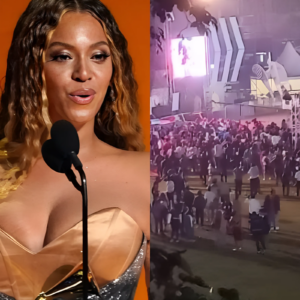Taraji P. Henson’s revelations about her experiences in Hollywood shine a light on systemic issues of inequality and mistreatment within the entertainment industry. Her candid remarks about being underpaid and undervalued, despite her undeniable talent and contributions, underscore the persistent disparities faced by black actresses.

The fact that Taraji has been stuck in the same pay grade since 2018 is deeply concerning. It speaks to a larger pattern of inequity where black performers are often paid significantly less than their white counterparts, even when they have achieved similar levels of success. This pay gap not only reflects racial bias but also perpetuates systemic inequality within the entertainment industry.
Moreover, Taraji’s allegations against Oprah Winfrey add another layer of complexity to the conversation. Oprah, a prominent figure in both Hollywood and the broader media landscape, holds significant influence and power. Therefore, the idea that she may be involved in lowballing and mistreating fellow black women in the industry is particularly troubling.
The incident involving Mo’Nique further highlights the challenges faced by black actresses who speak out against mistreatment. Mo’Nique’s decision to prioritize her family over unpaid promotional work for “Precious” resulted in her being labeled as difficult to work with—a stereotype often unfairly attributed to black women in the industry. Oprah’s response to the situation, while not directly addressing Mo’Nique’s concerns, suggests a reluctance to engage in public conflict, potentially at the expense of supporting other black women.
The pressure placed on Taraji to publicly defend Oprah, despite any personal reservations she may have had, speaks to the power dynamics at play in Hollywood. It raises questions about the extent to which black actresses feel compelled to prioritize their careers over speaking out against injustice or mistreatment, especially when it involves influential figures like Oprah.
Overall, Taraji’s revelations underscore the urgent need for greater accountability and transparency in Hollywood. Addressing issues of pay equity, fair treatment, and representation for black performers requires systemic change and a commitment to challenging entrenched biases and power structures. Only by amplifying the voices of marginalized individuals and holding those in positions of power accountable can the industry begin to truly address these longstanding issues of inequality.
News
Diddy LEAKS Disturbing FOOTAGE Of Beyonce & Jay Z | New EVIDENCE Revealed
The unfolding drama involving Diddy, Jay-Z, and Beyoncé has captivated audiences worldwide. Allegations of scandalous tapes, federal raids, and personal vendettas have dominated headlines, leaving fans shocked…
Tiffany Haddish SHADES Jennifer Hudson For Stealing Common From Her
Tiffany Haddish is making it abundantly clear that she’s not thrilled about comments on new relationship with Jennifer Hudson. She threw some major shade at Jennifer, hinting…
Breaking: Beyoncé’s “Cowboy Carter” Tour Sees Lackluster Ticket Sales, “Only 1500 So Far”
In a surprising twist of fate, Beyoncé’s highly anticipated “Cowboy Carter” tour has encountered a lackluster start, with only 1500 tickets sold for its opening night. This…
“Blue ivy is pregnant” Cardi b Exposed truth about the pregnancy on live TV show says CONGRATS
Welcome to CB Gossip, your go-to source for all the juiciest entertainment news. Don’t forget to hit that subscribe button and ring the bell for more updates….
Kevin Hart FREAKS OUT As 50 Cent LEAKS New Video Of Him & Diddy..
Absolutely, let’s delve deeper into these issues. It seems like there’s a plethora of speculation and rumors surrounding celebrities and their connections to Diddy’s controversial activities. From…
Mike Tyson EXPOSES Members Of Diddy’s S3X CULT..
Unveiling Diddy’s Troubles: A Deep Dive into Allegations and Controversies In recent years, Sean “Diddy” Combs, the rap mogul and entrepreneur, has found himself embroiled in a…
End of content
No more pages to load











